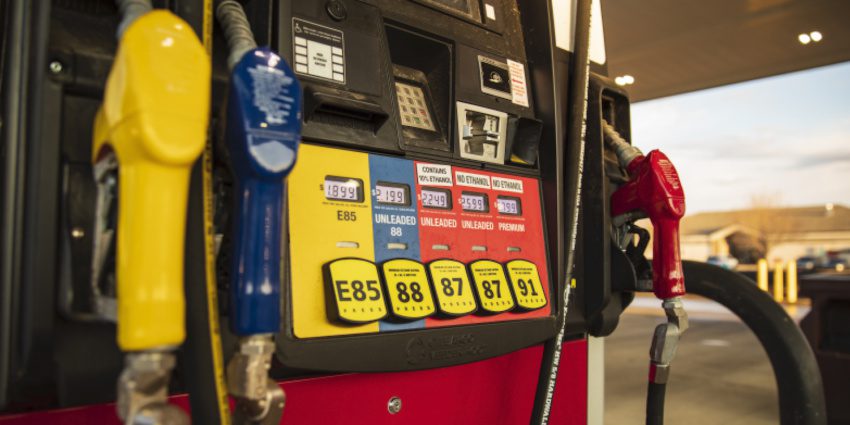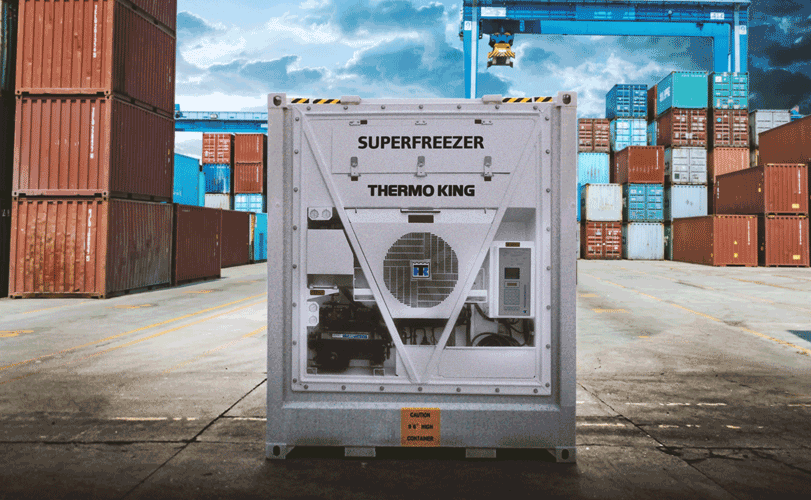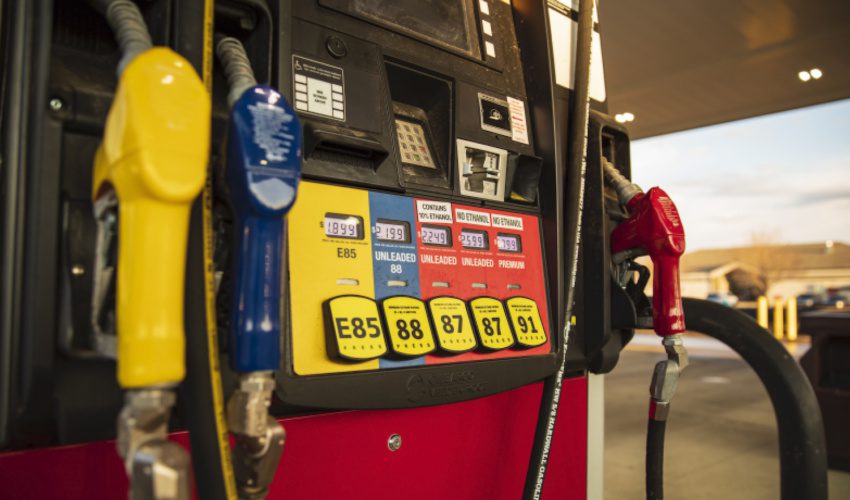Q&A with the experts: Ethanol and your vehicle
June 19, 2020
This paid piece is sponsored by POET.
The summer driving season is officially upon us! After a long, tough winter hunkering down in quarantine, families in Sioux Falls are taking advantage of the warm weather and summer break to plan activities that allow for social distancing: road trips, sightseeing trips and excursions.
To make sure your summer trips are as economical, environmentally friendly and good for your engine as possible, we’ve provided a guide on using ethanol to power your vehicle. To do so, we brought in our favorite automotive experts to answer common questions consumers have when it comes to using ethanol.
Expert panel
Dr. Andy Randolph is the technical director of ECR Engines, formerly Earnhardt Childress Racing Technologies, the company responsible for designing, building and supplying the car engines that power NASCAR.
He brings a wealth of experience in the automotive field, having previously worked for General Motors for 13 years.
Today, NASCAR has logged over 15 million miles on E15, fuel blended with 15 percent ethanol, which has lowered NASCAR’s emissions by 20 percent and at the same time created more power for the vehicles.
Under the Hood-The Motor Medics Russ, Chris and Shannon are the hosts of the “Under the Hood” radio show, America’s favorite car-talk show heard on over 230 stations across the country.
Doug Berven is the vice president of corporate affairs at POET and has been with the company in various roles since 2003. In his current position, Berven travels the world sharing the importance of agriculture and the benefits of biofuels.
They answered your common ethanol questions for us as you prepare to hit the road this summer.
First, can you tell us what exactly ethanol is?
Dr. Randolph: Simply put, ethanol is an alcohol made from grain or other natural substances. It is used as a renewable, clean-burning fuel for our vehicles. Today, nearly all gasoline in the country consists of 10 percent ethanol. In Sioux Falls and around the country, you can find a blend of 15 percent ethanol that’s often marketed as Unleaded 88. It provides some excellent advantages as far as efficiency, cleanliness, reliability, safety and octane. It also costs less. So a better fuel, for less money. That’s a great deal!
In contrast, gasoline is made up of hundreds of chemicals that are refined from oil. These chemical blends vary dramatically around the country and contain some of the most toxic chemicals you can imagine. When these chemicals pass through your car, they are really bad for the environment and even worse for human health. Ethanol is cleaner, better for your car and less expensive.
You mentioned octane; what’s that and why do our vehicles need it?
Dr. Randolph: Octane is critical from a combustion standpoint and is good for all car engines, especially high-performance engines like race cars or cars calling for premium fuel. Octane measures how heat resistant your fuel is. In your car’s engine, you have a spark plug, and you discharge a spark when you start your ignition. The spark is created by igniting a mixture of air and fuel at perfectly timed intervals. This mixture is compressed to get the most energy out of the reaction, which creates a lot of heat. Ideally, the spark starts a flame that spreads across the engine in a controllable and repeatable fashion. Now, if your fuel does not have high-enough octane and is unable to withstand high temperatures, it can misfire prematurely and spread past the spark plug in an uncontrolled fashion in the engine. It can be very hard on your engine. However, with higher octane (like ethanol), the fuel has a lower tendency to auto-ignite in a premature, uncontrollable way.
Under the Hood Mechanics: Too little octane can damage the engine and prevent you from getting better miles per gallon and getting the power out of your car. Another important thing — octane is very expensive to add into gasoline. When you use ethanol to create the octane, you don’t have that expense. So you are getting a better value from your fuel.
Berven: It’s safe to say that ethanol provides the highest octane rating at the best value with the least amount of toxins, resulting in cleaner engines and lower greenhouse gas emissions out of any octane source.
Let’s go back to something you mentioned earlier, that ethanol is single molecule with fewer greenhouse gas emissions. What are some of the environmental benefits of using ethanol?
Berven: From an overall environmental standpoint ethanol is 43 to 70 percent lower in greenhouse gas emissions than gasoline. That’s helping to reduce climate change and clean up the environment. It’s also very good from a human health standpoint in that when you burn fuels, something is going to come out of the back-end tailpipe, right? Gasoline is putting very toxic fumes into the air, which have been tied to all kinds of health problems, including cancer, asthma, autism and the list goes on. Ethanol burns much more cleanly and reduces tailpipe toxins. Ethanol is also renewable. We get it from plants, which makes it totally renewable versus non-renewable fossil fuels that we extract from the earth and blow into the atmosphere.
Under the Hood Mechanics: The simplest way to think of it is ethanol is alcohol, and some adults drink alcohol. I don’t know any adults that drink gasoline. It just can’t be done. Right?
Dr. Randolph: I also want to add in relation to what the Mechanics said about drinking alcohol, think about hand sanitizer. With COVID-19, we have to use sanitizers to stay safe. What is the key component of sanitizer products? Alcohol – a.k.a. ethanol! Right now, everyone is putting ethanol on their hands and on their bodies constantly. Now I wouldn’t recommend doing that with gasoline. Gasoline would cause rashes, skin problems and all sorts of irritations.
What are some of the other benefits of ethanol?
Under the Hood Mechanics: Ethanol helps improve vehicle performance. It’s clean so you have less carbon buildup in the engine. You have less sludge buildup, gum and varnish in the fuel injection systems, which is huge because you want a good, clean-burning fuel system. You see commercials all the time for the various companies selling products to clean your engine. Well, if you put ethanol in at the pump, you are already cleaning your engine. And if your engine runs efficiently, that equates to better gas mileage.
Dr. Randolph: Another engine benefit of ethanol is related to reliability and durability as well as performance. Ethanol is excellent at cooling the air that is injected into the engine. We can get to situations in our laboratory where our running engines will actually generate ice on the intake manifold. Because when you vaporize ethanol, you get about three times more cooling compared to gasoline. That causes better-performing automotive parts like pistons, valves and exhaust, which are sensitive to temperature.
So ethanol is better for your car and better for the environment. Are there other reasons why the average Sioux Falls consumer should use ethanol in their vehicle?
Berven: Where do we start? Ethanol is good for every aspect of our lives. We’ve already talked about the performance, environmental and human health benefits of using ethanol in our vehicles. It’s also great for our economy. Ethanol is produced domestically and employs hundreds of thousands of people.
Even though Sioux Falls is less rural than the rest of the state, our economy benefits tremendously when agriculture is successful. Ethanol is great for agriculture because we provide a critical domestic market for grains that otherwise wouldn’t be there. As yields continue to grow, and grain values decline, ethanol can provide the market balance for surplus grain – providing clean, affordable fuel, nutritious feed for animals, food-grade CO2 and many other valuable products.
Agriculture is the No. 1 industry in South Dakota and is the economic backbone of the country. Ethanol is critical to its success. It’s also great for our national security because it reduces our dependence on foreign oil. Finally, for all the reasons we talked about today, ethanol is the best option for the consumer. It’s good for your engine, it’s good for the air you breathe, and it’s good for your pocketbook.









